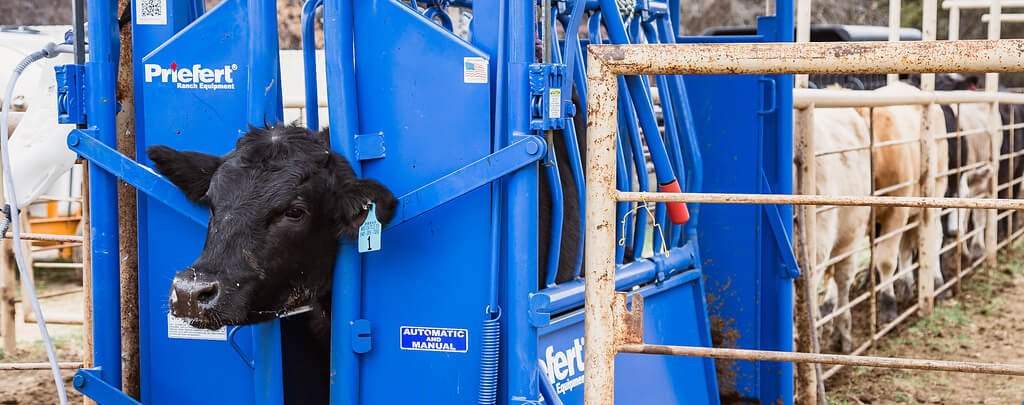
Tips for Deworming Cattle
Heavy parasite infections can be detrimental to your cattle. Research shows that internal parasites can cost a producer nearly $200 per head over the lifetime of each animal. Being consistent with deworming cattle can pay off in the end and help ensure your livestock's health and well-being.
Protecting your herd and your bottom line is a matter of being aware of signs and symptoms. What is the best way to deworm cattle and how can you take proper precautions? The NRS experts answer those questions and more with our tips and insight on deworming cattle.
Types of Dewormer
Ranchers can deworm cattle in a few different ways:Top Cattle Dewormer Injections
Top Oral Cattle Dewormers
Top Pour-On Cattle Dewormers
Shop all Cattle Dewormer
People often wonder when to worm cattle. To determine the right time, you need to consider the region and climate conditions. If you live in a northern climate where temperatures are often cold, internal parasites can go into a form of hibernation in your cattle's gut. They'll then emerge when weather conditions become conducive to larval survival. In a hot, southern climate, however, larvae will develop in summer and emerge in the fall. Knowing this information can help you gauge the best time of year for deworming cattle on your ranch. We recommend deworming cattle based on the work-life cycle throughout the season to lower the worm burden in cattle and on the pasture. It also helps to know the types of worms in your area so that you can target them specifically. Ultimately, your veterinarian can help you determine the best strategy for your area, grazing patterns and pasture.
How Often Should You Worm Cattle?
Age plays a big factor in the frequency of deworming cattle. You should start deworming calves at two to three months of age, either before or after weaning. Nursing calves are typically at high risk of internal worms, so it's extremely important to monitor them. As they age, however, cattle should typically be dewormed one or two times a year. The older the cow is, the greater the chances are of it building immunity to worm infections.
If your mature cows are in good bodily condition, you typically only need to deworm them once per year. In some cases, they can even go untreated. It all boils down to the cattle's age, health and the type of environment it's been exposed to.
Fecal Sampling: How Do You Know if a Cow has Worms?
When you know what to look for, you can keep parasite infections from thwarting appetites and debilitating performance. There are certain signs that will indicate if your cow has worms. Internal parasites cause subclinical effects that show up as production losses. Your cattle may not look sick, but you'll notice decreased milk production, difficulty breeding, loss of feed efficiency and rough coat conditions. Parasites can also cause lower weaning weights in your cattle which can be aided with a growth supplement. Along with these symptoms, it's important to keep an eye out for anemia, edema and an overall weakened immune system. While these effects are bad for your cattle's health, they can also have major economic impacts. As a result, it's important to deworm your cattle before you start to see physical signs.
Shop all Cattle Supplies
Reduce Chances of Resistance with the Right Cattle Dewormers
With the introduction of deworming products and advanced technology, some classic deworming practices have been disregarded. Cattle dewormers will have a decreased efficiency if you overstock pastures, fail to rotate classes of livestock on pastures and don't monitor your animals closely. We recommend using concurrent deworming treatments to better handle a wider spectrum of parasites and treat other health concerns. It's also wise to rotate classes of dewormers every few years to avoid overuse.
For More Tips on Deworming Cattle and Top-Quality Cattle Dewormers, Look No Further Than NRS
When it comes to deworming cattle, you want the very best. With years of experience and a passion for livestock care, the NRS experts are here to help. We offer a wide selection of cattle products to help you maintain your herd's health and well-being. Shop our dewormer supplies today! We look forward to assisting you with premium products and unparalleled service!
















